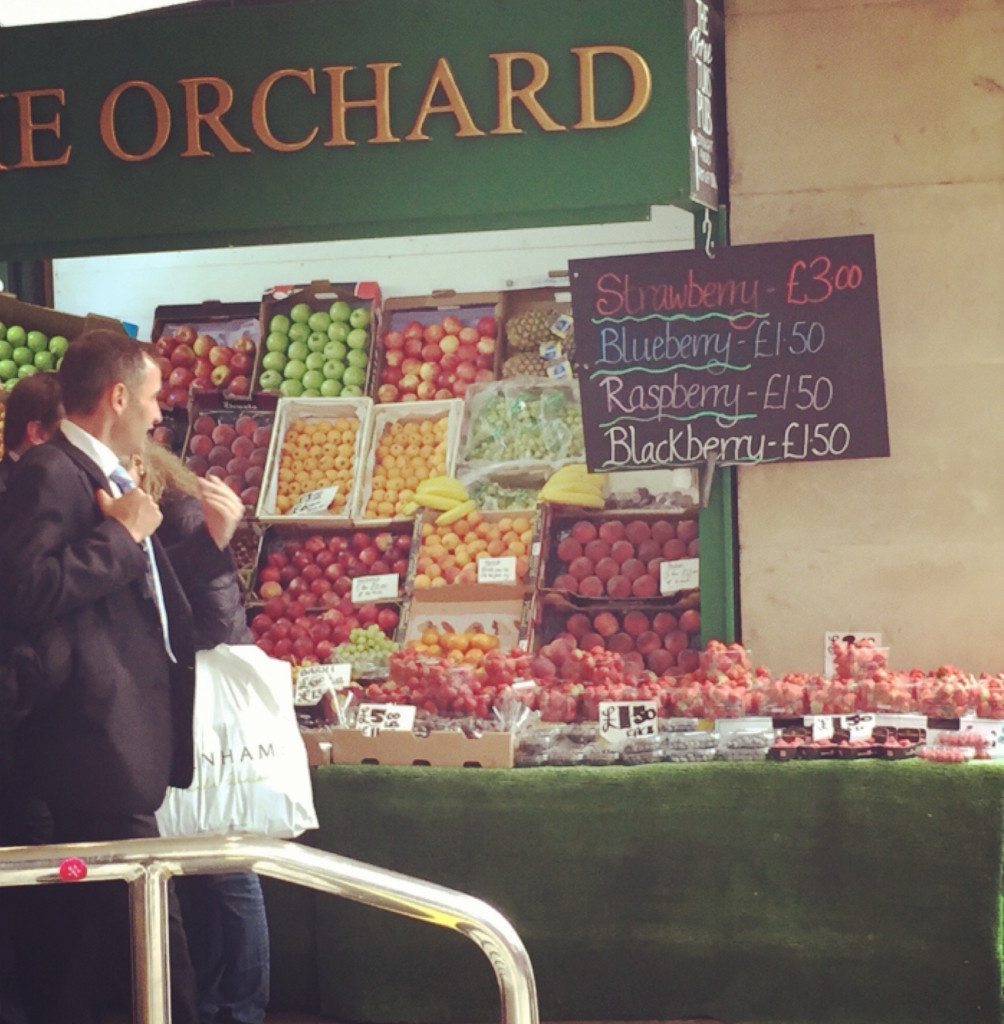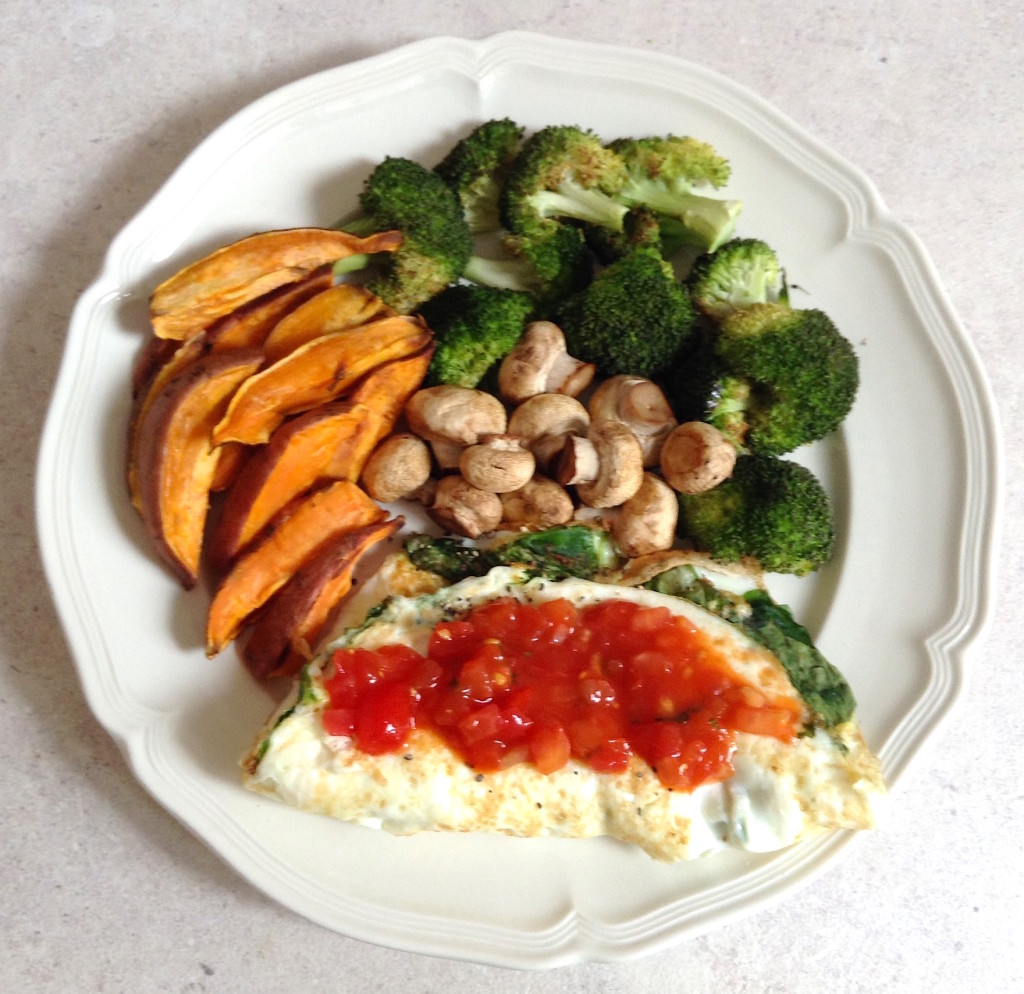From being deemed boring, bland, and time-consuming, there, are so many stigmas attached with healthy eating. The one that irks me most is that healthy eating is expensive. While healthy eating on a budget can be difficult if you’re snacking on foods like Bounce Balls (£1.75) & RAWnola Grain-Free Granola (£5.99) and dining at organic eateries on a regular basis, fortunately it’s not always the case. There are a few products which I do splash out on (e.g. dark chocolate & protein powder), but most of the time my grocery budget is effortlessly reasonable. Even if grocery budgets do allow for expensive foods, it’s always nice to save some moolah. Hopefully these tips will help facilitate healthy eating on a budget:
- Eat local & seasonal: Aside from being tastier, more nutritious and more environmentally-friendly, local & seasonal food tends to be cheaper. For example, a 250g box of (imported) blueberries in Mumbai costs around £9 whereas a kilo of apples costs around £3- guess which fruit I tend to eat when I’m back in India!

- Buy in bulk, especially nonperishable foods like grains, nuts, dried beans & canned goods. It’s also cheaper to purchase fruits and vegetables such as apples, oranges, potatoes, and onions by the bag, not by the piece. When buying protein in bulk, I tend to keep enough in the fridge to last me 2-3 meals and then freeze the rest in single serving packages. Aside from preventing waste, all I have to do is pull out a package earlier on in the day to let it defrost before cooking.
- Compare prices the right way: The lowest sticker price isn’t always the best price. Rather than the price on the packet, assess ‘unit price’ or ‘unit cost’ listed on the shelf directly below the item. The price reveals the ‘cost per gram (or millilitre)’ which is more useful.
- Buy ingredients not products: Whenever possible, buy raw ingredients and cook food yourself instead of shelling out cash for things like snack bars, kale chips, and beef jerky. While these foods are certainly convenient, they also tend to be heavily overpriced. Moreover by making your own food, you know exactly what goes in it and avoid eating any unnecessary preservatives, additives, and chemicals.

- Keep an organised fridge & pantry so you know what you already have & what you need to buy. While it’s great to keep a well-stocked fridge, it’s almost pointless when certain foods get lost in the back of the fridge and, as a result, becomes rotten.
- Get over brand names: Branded foods cost more than their generic counterparts but most of the time, we are merely paying for a name on the package. If there is minimal difference in terms of taste & nutrition between the 2 items, I will almost always purchase the generic option. For something like oats, I rather buy the supermarket generic brand rather than a packet of Quaker. Although the taste & grain size is identical, the latter costs almost 3 times more.
- Take advantage of deals & discounts: This is almost a no-brainer but if something is on offer and you tend to eat/drink it regularly, buy extra. Waitrose recently had a ‘3 for £3′ deal on Alpro non-dairy milks…guess who walked away with 6 packets of soy & unsweetened almond milk.

And my last, but most effective, tip is:
- Pick your battles: In a dream world we’d be buying everything grass-fed, free range, organic and yaady yada yada. In reality, that would make eating at home very expensive. The best way to get by this is to do your research & determine what is and is not important to you. When determining whether to buy organic or conventional I go by the skin test: if the produce comes with a skin that I’d remove prior to consumption (e.g. oranges, bananas and cantaloupe), I opt for the conventional variety. For fruits & vegetables on the Dirty Dozen list that are likely to have been contaminated, I rather pay a bit extra for the organic variety when it’s an option.
What are your tips for healthy eating on a budget?

It’s definitely daunting when you’re first getting started on a healthy eating journey. I think the best thing to do is research. Find farmer’s markets in your area, look up fun recipes (and save them in an easy to find place), look up restaurants that offer healthy options, etc. When you have the information on hand, you’ll feel more empowered and in control. This is something I try to do every time we move, and it really does help!
Super tips, P! I think the key is feeling empowered and realising that you have complete control of what to buy and what not.
£9 for blueberries? Mumbai sounds like Australia!
Great tips! I’m all about eating healthily on a budget now that I’m living that nomad life. No more bounce balls and Quest bars for me!
How do the grocery prices in Italy compare to London?
So much cheaper! Like 50-60% of the price. My favourite staples like meat, eggs and veggies are particularly cheap!
AWESOME post, Khushboo! I love all your tips!
I had a co-worker who would always condemn healthy eating, saying it was far too expensive! The one week we compared grocery bills, I eat a lot of veggies and occasionally meets and other stuff, but, my grocery bill was way less than his! And we even divided the $$ down to an average of 1, as he’s a family of 4 and mine is just the 2 of us, currently.
Thanks Shashi! Love that you are able to prove your co-worker wrong…proof is literally in the pudding (errr well receipt ;))!
Great tips, girl! I actually think that eating healthy can be fairly inexpensive as long as you’re keeping things simple and not going for all the fancy powers and treats. All of your tips are awesome, and another one I would add is to talk to your store’s manager to see if you can’t work out some kind of arrangement. I’m not sure if this would work with the huge chains, but I managed to score a really sweet deal on bananas and sometimes other produce that’s been deemed too “ripe” for selling. It’s awesome because I get my bananas spotty the way I like them, and the store still gets some money instead of just having to toss them. Win, win!
Thanks Amanda :)! That’s such a great tip about speaking to stores beforehand- love that you’ve managed to strike a deal for produce with the store near you!!
Great tips, lady! Healthy eating can definitely be cost-effective if you plan it out a little bit and avoid the overpriced stuff. I’m trying to get better about making my own snacks/bars rather than buying them, but sometimes convenience wins out. Something for me to work on!
I completely agree with you, Sam- when laziness/convenience kicks in, it’s hard to resist the temptation of buying packaged food!
Great tips! I love it. Another one is to eat less animal protein. That stuff is expensive especially, if you’re buying grass free free range, organic, which I of course applaud.
With my CSA, I actually find it much less expensive to be healthy. My produce share is roughly $23 a week, and I get more produce than I’d ever use so I freeze a ton of it for the wintertime. This way I still get the taste of summer in the middle of winter without any additional cost, and the farmers get a consistent paycheck regardless of weather conditions so they keep farming. Talk about a win, win.
Awesome tips, Meg! I especially love that you are part of a CSA- way to support local farmers!!
These are really good tips! I’ve just started to eat healthy so they will come in very handy. I think buying in bulk will be the way to go for me..
Thanks Kim- glad you have found these tips helpful :)!
Pingback: . link love 7/19 . - . running with spoons .
Pingback: Weekly Links: 07.26.15 | foodiecology